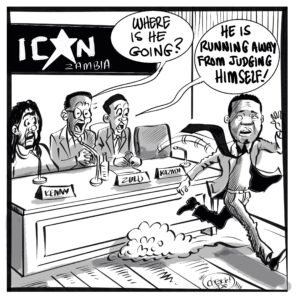The 2019 World Economic Forum (WEF) on Africa kicks-off this week in Cape Town, South Africa, with a rallying call to action to tackle corruption and create sustainable employment opportunities for Africa’s large and growing workforce.
In a statement issued by WEF’s public engagement officer Oliver Cann, this year’s 28th meeting is expected to bring together around 1,100 leaders from government and the private sector to look at solutions to tackle corruption in building more equitable societies as well as growing sustainable employment opportunities across the African continent.
“The 28th meeting will bring together 1,100 leaders from government, business and civil society, including 10 heads of state or government. Top of the agenda will be new partnerships to create sustainable employment opportunities for Africa’s large and growing workforce. The meeting will highlight: improving the funding and regulatory environments for start-ups; developing new partnerships for re-skilling and upskilling workers; identifying opportunities for green growth, such as the circular economy; scaling-up e-commerce for rapid business growth, especially in the SME sector; and how to leverage the new Africa Continental Free Trade Agreement to drive regional integration,” Cann stated in a news release issued from Johannesburg, South Africa, Monday.
“Also high on the agenda are government policies and responsible business practices to provide a foundation for a more inclusive society. While globalization has driven economic growth, it is criticized for leading to unacceptable levels of income inequality. Tackling corruption, universal healthcare provision and protection of workers in the gig economy all have a role to play in building more equitable societies.”
Head of Africa at the Forum Elsie Kanza explained that the multi-stakeholder engagement at the WEF was designed to bring about systematic change to the pressing socio-economic challenges facing Africa.
“The World Economic Forum brings top leaders together to create the conditions for socio-economic investment to happen. Africa, like all regions of the world, faces great challenges. For the region to prosper in an increasingly globalized world, it needs transparent governance, competitive economies and peaceful societies. This systemic change can only be achieved through multi-stakeholder collaboration,” said Elsie Kanza.
Heads of state or government participating in this year’s meeting to run between September 4-6 and held under the theme: Shaping Inclusive Growth and Shared Futures in the Fourth Industrial Revolution include: South Africa’s President Cyril Ramaphosa; Mokgweetsi Masisi, President of Botswana and Azali Assoumani, the President of the Union of the Comoros, among others.
Zambia is expected to be represented by Commerce Trade and Industry Minister Christopher Yaluma.
























